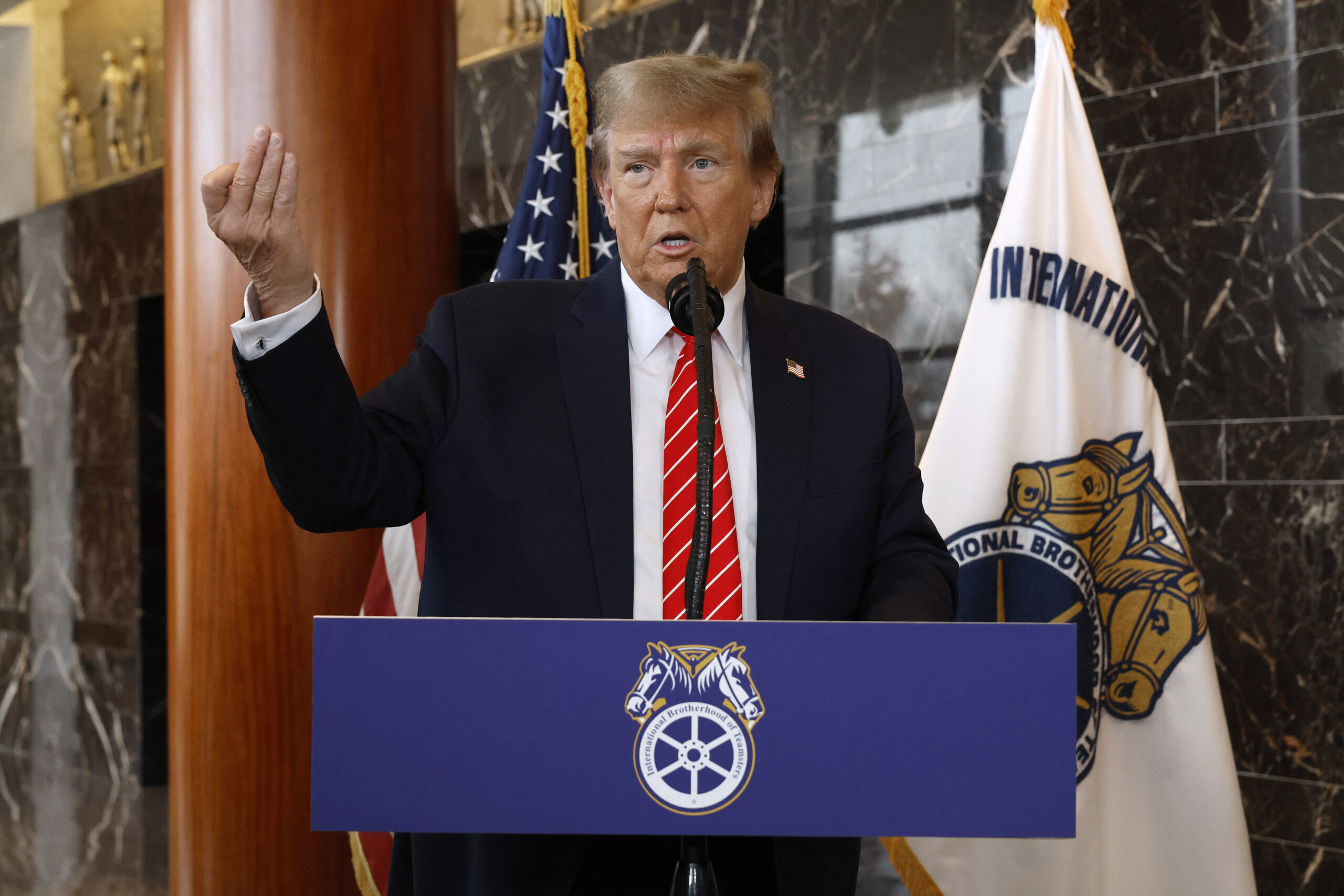
As many within the United States and, indeed, the world stand aghast at the recent developments of former president Donald Trump’s continuing legal woes and at his surrogate’s real or pretended outrage shown towards any who would dare to call him to account, such behavior of many conservatives in that regard, believe it or not, is nothing new. Facts have often proven to be inconvenient things for many in the Republican party and to its political support mechanisms for decades. This has been the case in their responses to anything which happened to marginalize or to threaten their domestic or international policy agendas. The issues having to do with the former president’s legal woes, and their worrisome implications for the 2024 presidential race is but one of many milestones along a highway of demagoguery and propaganda. Nowhere is this more evident than within the obscure, but powerfully influential world of political “think tanks” where the conservative of the species has long been in the ascendency over those on the liberal left in hegemonic proportions for many decades.
One would think that the basic elements of law and order under which the former president was weighed and found wanting, and which were used as a basis to charge him with crimes would have provided the genesis and the focus towards rational analyses and debate as to his innocence or guilt. In a society where defendants have the opportunity to rebut charges filed against them, with testimony and evidence acceptable to the courts, the law does not appear to be appropriate or enough for the former president, his surrogates in Congress, for those in the various state houses across the country, or for his political base. In fact, he has not yet been tried in any federal or state jurisdiction, except for a defamation case in the State of New York where he was found guilty of rape and fined millions of dollars in damages, by a jury of his peers. Like every citizen he has rights under the law. In fact, he can avail himself of his rights even more than most Americans, given certain privileges he now enjoys because of the office he once held and due to the vast financial resources that he possesses and uses to pay for his legal expenses. He is better off than most. And yet, to many, the facts upon which the allegations against him are based, and the laws which he has allegedly broken be dammed. For political conservatives, this strategy is a threadbare one. Facts, to them, have often been inconvenient things, pesky and annoying details which they either need to ignore, totally, or ones to be twisted and used for selfish ends.
During the early years after World War II there were some who sought to address certain societal ills, as they saw them. They recognized that this would require a change in government policy. But the information needed to define, to assess and to develop remedies in order to address them were at a premium. Government at the time did not have the technical resources nor the man power to conduct research and to collect data that could inform policy decisions. What also complicated and exacerbated such problems and prevented the development of effective remedies in the eyes of such individuals — a cadre of capitalists, academics, politicians, diplomats and career civil servants known as “progressives” — was the divisive, self-serving, parochial, ideological, “business as usual” political interests that were in vogue at the time. Those “progressives” or “elites” sought to guide their agenda by objective social science research. What, for example, were the causes of poverty? What tended to spark social unrest with their concomitant protests and riots in the streets? What gave rise to industrial strikes? What could be done to mitigate these? What gave rise to crime and violence, and what factors tended to perpetuate them? What tended to ignite and to fuel the conflagrations of war, and what could be done to prevent them? These and other issues helped to contribute to the formation and to the development of think tanks in the U.S.
Before the Great Depression, which occurred between 1929 and 1939, an economic shock that impacted most countries across the world, the captains of industry in the United States had full sway in the local economy. But the depression of the 1930s was just one of many which had occurred in the country. Under President Franklin D. Roosevelt the federal government became more involved in regulating the economy. Also, in the aftermath of the Great Depression the government instituted a variety of welfare programs as social safety nets for many workers and the poor who bore the brunt of the ravages of the economic downturn.
The economic theory that was used to guide this government initiative was that of John Maynard Keynes, an English economist. All this was done by the Roosevelt administration to the chagrin of those in the business sector and those within the political realm who supported them. But their track record in respect to self-regulation in the economy, and the president’s increasing reliance on data provided by social scientists which shaped his policies pushed the old ideas and concerns of the latter in government policy debates to the margins. The emerging “liberal” and “progressive” think tanks rose to the ascendancy in influencing government policy, both domestically and internationally. The business element, from which the modern conservative movement largely emerged, have been on a quest, since then, to stem the growth of what they saw as “big government” and to get rid of the “welfare state” with all of its social safety nets for the laboring classes and the poor. Affirmative action was one of those government policies, and the main recipients of those policies and programs were white American citizens.
With the financial support of big business, conservatives soon developed their own think tanks, managing to change the way that government policies were debated, and gained the ascendancy over their political, economic and cultural rivals in such a debate. Instead of using the rigors of objective data collection and analyses as employed in academia, a practice borrowed by the progressives in the formation of their think tanks, they resorted to threadbare political ideology, with great success, to achieve their ends. Instead of allowing data to shape or guide their agenda, as the progressives attempted to do at the beginning, they sought to use their ideological agendas to totally ignore, or to misuse existing social science data towards meeting their goals. The idea of “alternative facts” today is indicative of such influences. Again, they were so successful in the form of debate that they called “the market place of ideas” that the few left leaning institutions of that ilk began to adopt a similar strategy, allowing ideology to speak for the facts, instead of letting the facts speak for themselves. And, if one repeats what is not true, over and over again, then it will become true not only to lawmakers but to the ordinary man in the street.
There is a large number of think tanks in the United States, comprising a billion dollar tax-exempt industry, which influences government policies and which helps to decide political elections. Think tanks publish articles and studies, and even draft legislation on particular matters of policy or society. This information is then used by governments, businesses, media organizations, social movements or other interest groups. Think tanks range from those associated with highly academic or scholarly activities to those that are overtly ideological and pushing for particular policies, with a wide range among them in terms of the quality of their research. Later generations of think tanks have tended to be more ideologically oriented, as was stated earlier. They are a global phenomena. Approximately 90.5% of think tanks were created after 1951 and nearly 55% of them are located in Europe and North America. On a country-by-country basis, the U.S. has the most by far with 1,872, followed by 512 in China and 444 in the United Kingdom.
The behavior of many who support the former president in response to his legal woes, despite the glaring facts, have been shaped, largely, by the methodology developed by conservative think tanks in this country. But the shaping of societal thoughts, behaviors and norms cannot be laid at the feet of conservatives alone, but also before those of liberals. Much of what we think and say, are not as original as we might think. But, do not take this writer’s word for it, do some research of your own. The only recommendation is that one be extremely mindful and careful to read the work that was produced by academia, which came from rigorous research that produced objective data, and which was also subject to highly critical review. Think tanks pretend to search for objective conclusions working from pre-formed conclusions. The word “objective” is quite “subjective” to them. They are ideological in nature and not scholarly, though they often present themselves as such. Their professed intellectual independence is tainted by the interests of their donors. Have you given to a think tank lately? Are your interests aligned with theirs?



